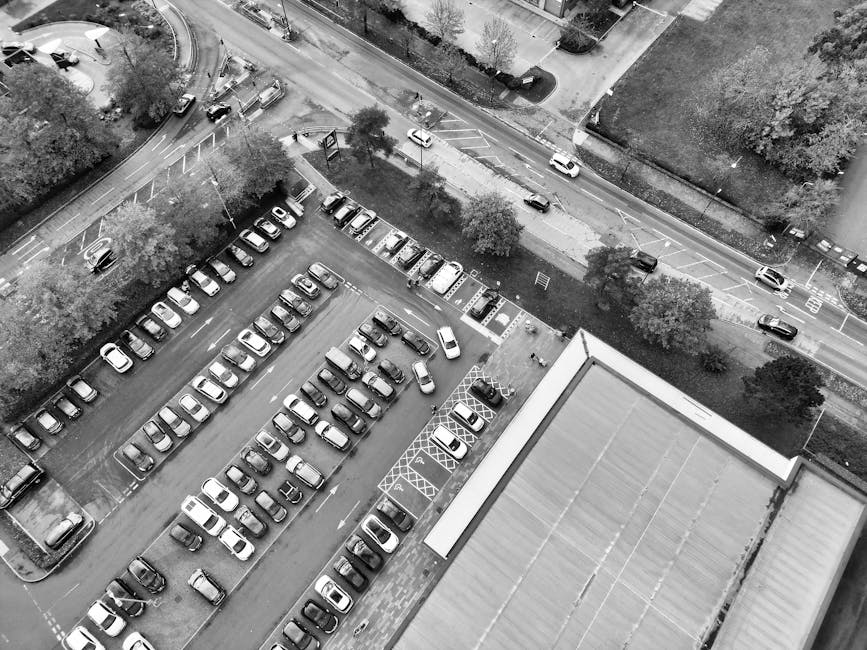AI for Social Good: Addressing Urban Challenges in Liverpool
Just as the Beatles revolutionised music from Liverpool’s heart, AI is poised to transform this vibrant city’s urban landscape.
You’re at the forefront, witnessing AI tackle traffic snarls, cut down pollution, bolster public safety, and streamline resource management.
Dive into how Liverpool harnesses cutting-edge technology to foster social good, blending technical innovation with community spirit.
You’ll explore the analytical depths of AI’s impact and its potential to reshape the future of urban living.
Key Takeaways
- AI-driven traffic optimisation and pollution reduction can significantly reduce commute times in Liverpool.
- AI can enhance public safety by predicting and preventing crime, optimising law enforcement resources, and improving emergency response times.
- AI can play a crucial role in sustainable resource management, such as optimising crop yields and water usage in agriculture and integrating renewable energy sources for better grid management.
- AI initiatives can promote community engagement, digital inclusion, and citizen participation in urban development, leading to inclusive dialog and solutions grounded in data.
AI-Driven Traffic Optimisation

You’ll notice a significant change in Liverpool’s commute times as AI-powered traffic management systems streamline vehicle flow and reduce congestion. The bedrock of this transformation lies in the sophisticated algorithms that underpin real-time rerouting and congestion prediction.
By analysing vast quantities of traffic data, these AI systems identify patterns and predict bottleneck formations before they occur. This pre-emptive approach not only eases current traffic snarls but also forecasts and mitigates potential future disruptions.
Incorporating real-time rerouting, the system dynamically adjusts traffic signals and guides vehicles through less congested paths. As a commuter, you’re no longer stuck following static routes that may lead you into gridlock. Instead, you’re seamlessly navigated around it, saving time and reducing the stress associated with unpredictable travel times.
Congestion prediction is another technical marvel. By anticipating traffic volume and flow, AI allows urban planners to make informed decisions about infrastructure development and maintenance, effectively planning for growth and avoiding the reactionary pitfalls of traditional traffic management.
This AI-driven approach is a leap towards urban efficiency. It’s a complex interplay of data analytics and machine learning, honed to deliver tangible improvements to your daily commute, proving that AI’s potential to enhance the social fabric isn’t just a promise—it’s a reality.
Pollution Reduction Through AI

How can AI further enhance Liverpool’s environmental health beyond easing traffic congestion? By leveraging smart sensors and advanced pollution analytics, AI can play a pivotal role in reducing urban pollution. These technologies enable a more nuanced understanding and management of environmental data, promoting a cleaner cityscape.
- Smart Sensors Deployment
- Real-time Monitoring: Smart sensors installed throughout Liverpool collect real-time data on air quality, identifying pollution hotspots.
- Predictive Analysis: AI algorithms predict future pollution levels, allowing for proactive measures.
- Integrated Responses: Sensor data can inform traffic systems to reduce congestion-related pollution dynamically.
With an analytical approach, these smart sensors feed vast datasets into AI systems that dissect and interpret the complexities of urban pollution. Through technical insight, this analysis transforms into actionable strategies.
- Pollution Analytics Capabilities
- Pattern Recognition: AI identifies patterns in pollution, suggesting targeted interventions.
- Emission Source Identification: Pinpointing the sources of highest emissions informs policy decisions.
- Public Health Correlations: Analysing the impact of pollution on health outcomes drives public health initiatives.
This technical orchestration of data not only aids in immediate pollution reduction but also shapes long-term environmental strategies. As Liverpool becomes a model of AI-driven environmental stewardship, the city’s focus can also shift towards leveraging similar technologies to enhance public safety, seamlessly transitioning into the next critical domain.
Enhancing Public Safety With AI

While reducing urban pollution through AI has been a focus, the same technologies can also enhance public safety in Liverpool by predicting and preventing potential hazards. Integrating advanced algorithms, AI systems are increasingly pivotal in crime prediction, scrutinising vast amounts of data to identify patterns that human analysts might overlook. These patterns can pinpoint areas with higher crime probabilities, enabling law enforcement to allocate resources more efficiently and proactively intervene before incidents escalate.
Moreover, AI-driven analytics extend to emergency response, optimising the deployment of police, fire, and medical services. By analysing historical incident reports and real-time data from various sensors and cameras, AI can predict where accidents and emergencies are likely to occur. This predictive capability allows for quicker response times, potentially saving lives and reducing the impact of critical situations.
With machine learning models being fed data from social media, weather forecasts, and IoT devices, emergency services can anticipate and react to complex scenarios with greater precision. This technical orchestration of data and predictive analytics represents a leap forward in urban safety measures.
As Liverpool continues to leverage AI in these domains, it’s clear that the city’s approach to public safety is becoming increasingly sophisticated. This shift toward technology-driven strategies sets the stage for further innovations, such as AI for sustainable resource management, which promises to redefine urban living yet again.
AI for Sustainable Resource Management

As you consider the advancements in public safety, it’s worth noting that AI is also revolutionising sustainable resource management in Liverpool, offering innovative solutions for energy conservation and waste reduction. This technical evolution is pivotal for the city’s future, ensuring that resources are utilised efficiently and with minimal environmental impact.
-
AI’s Role in Sustainable Resource Management:
-
Smart Agriculture:
-
Optimises crop yields through precise monitoring of soil and weather conditions.
-
Reduces water usage with intelligent irrigation systems, adjusting to real-time data.
-
Enhances sustainable farming practises by predicting pest infestations and plant diseases.
-
Energy Forecasting:
-
Predicts energy demand with high accuracy, enabling better grid management.
-
Facilitates the integration of renewable energy sources by anticipating production peaks and troughs.
-
Improves energy conservation by advising households and businesses on optimal usage times.
These analytical strategies aren’t just theoretical concepts; they’re practical applications that are making a tangible difference. By harnessing the predictive power of AI, Liverpool is setting benchmarks in energy forecasting, leading to smarter consumption patterns and a significant reduction in carbon emissions. This technical foresight, coupled with smart agriculture techniques, positions the city as a leader in the global movement towards sustainability and environmental stewardship.
Community Engagement and AI Initiatives

You’ll see Liverpool’s commitment to sustainability mirrored in its community engagement programmes, where AI initiatives are empowering residents to actively participate in the city’s urban development.
These programmes prioritise digital inclusion, ensuring that the benefits of AI are accessible across the socio-economic spectrum. By leveraging neighbourhood analytics, Liverpool is able to dissect complex urban data, revealing insights that drive targeted interventions and foster an inclusive dialog with its citizens.
Through these AI-driven platforms, you’re not just a bystander but a contributor to the city’s growth narrative. Neighbourhood analytics illuminate patterns in resource allocation, traffic flows, and public service accessibility, offering a granular view of the city’s needs. This enables you to voice concerns and propose solutions grounded in data, rather than anecdotal evidence.
Digital inclusion is the lynchpin, bridging the gap between technology and community. It’s about equipping you with the tools and know-how to interpret AI outputs and translate them into actionable insights. This strategy doesn’t just passively collect data from residents; it actively integrates them into the decision-making process, enhancing democratic participation and cultivating a sense of shared responsibility for the city’s future.
Frequently Asked Questions
How Does the Implementation of AI for Social Good Aline With Liverpool’s Historical and Cultural Identity?
You must consider how AI integration honours Liverpool’s maritime heritage and musical legacy, ensuring that technological advancements don’t overshadow, but rather enhance, the city’s storeyed past and vibrant cultural scene.
What Are the Ethical Considerations Being Taken Into Account When Deploying AI Solutions in Liverpool’s Diverse Communities?
You must consider bias mitigation to maintain community trust when deploying AI solutions. Ethical AI requires analysing data impartiality and ensuring that algorithms do not perpetuate existing inequalities within diverse communities.
How Is the Success of AI Initiatives for Social Good Measured and Reported to the Public in Liverpool?
You’d measure AI success through metrics like usage rates and impact studies, ensuring transparency and public engagement with clear reports and statistics, providing insight into the technical efficacy and societal benefits of these initiatives.
What Are the Long-Term Financial Implications for the City of Liverpool Investing in AI for Urban Challenges?
You’ll find that investing in AI for urban challenges can yield scalability and significant investment returns, but it requires careful financial planning to mitigate risks and ensure sustainable long-term economic benefits for the city.
How Is the Data Privacy of Liverpool Residents Protected When AI Systems Are Utilised for Urban Development and Social Good Projects?
You must ensure data privacy by adhering to strict encryption standards and robust consent protocols when employing AI systems for urban development, to protect residents’ personal information from misuse or breach.
Conclusion
In the intricate urban tapestry of Liverpool, AI emerges as the meticulous weaver, threading solutions into the city’s fabric. Your streets flow smoother, your air breathes cleaner, and your nites rest safer, all while resources sustain their future stitch in time.
This digital alchemy transforms data into gold, fostering a community where every thread—every citizen—is an integral strand in the ever-evolving societal canvas, a testament to the power of AI for social good.
Contact us to discuss our services now!


